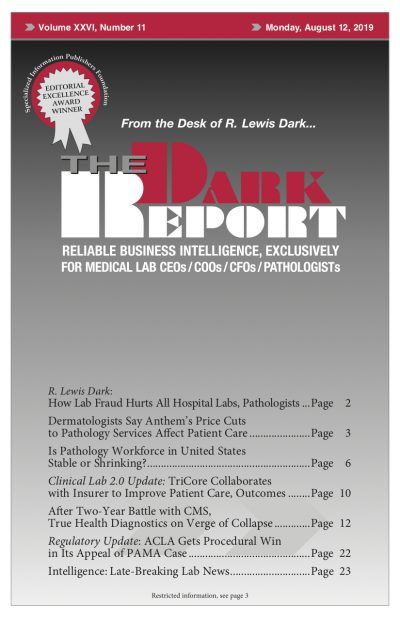CEO SUMMARY: In 2017, an auditor for CMS alleged that True Health filed fraudulent claims and the federal Medicare program cut all payments to the lab company and one month later reduced the cut to 35% of the billed amount. Two months ago, CMS ended all payments again. These facts became public on July 2 …
After Two-Year Battle with CMS, True Health on Verge of Collapse Read More »
To access this post, you must purchase The Dark Report.


